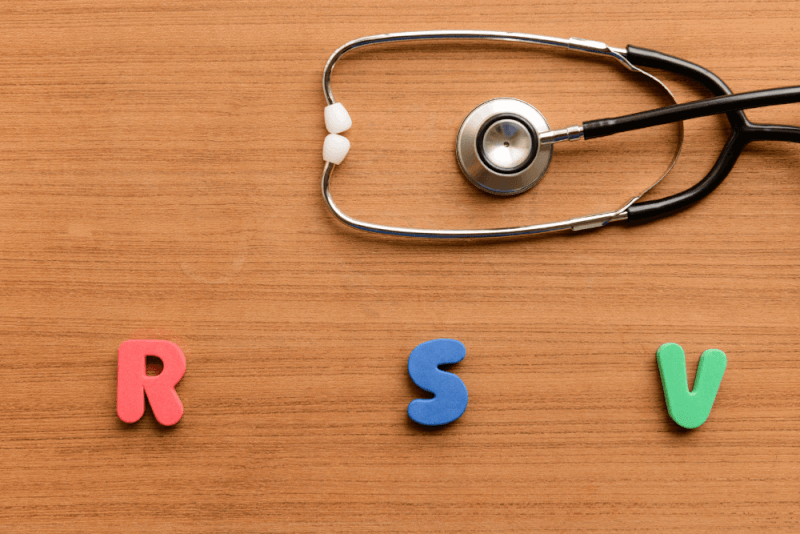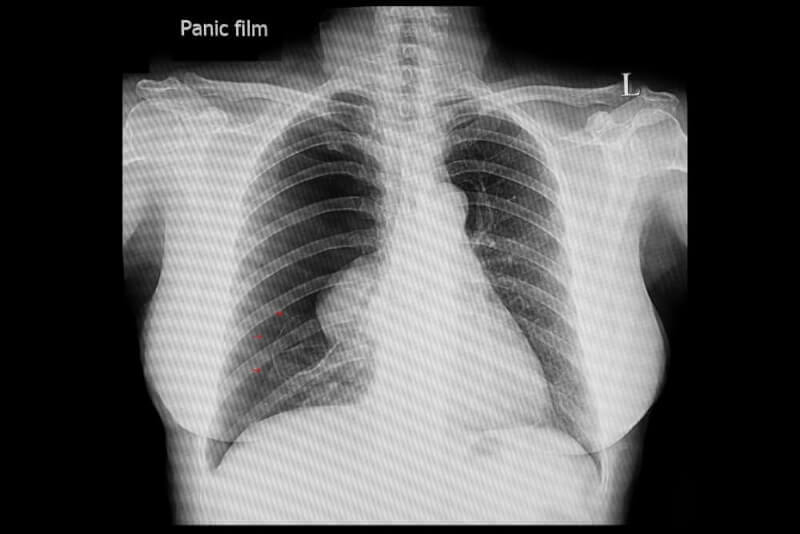30-Second Summary
- It is a virus that causes lung and respiratory tract infections.
- RSV can cause serious symptoms in babies under one year, older adults, premature babies, people with heart and lung diseases, and those with weakened immune systems.
- This virus enters the body through the respiratory tract. Infected droplets can easily spread between people through the air.
- Treatment for RSV generally involves methods to comfort the patient, though severe cases may require hospital care.
What is the Respiratory Syncytial Virus (RSV)?
The Respiratory Syncytial Virus (RSV) is a virus that causes lung and respiratory tract infections. This extremely common virus infects almost all children by the age of two. It can also infect adults.
In adults and older children, the severity of symptoms is usually mild and often resembles that of a common cold. Self-care is usually sufficient for treatment.
RSV can cause serious symptoms in babies under one year, older adults, premature babies, people with heart and lung diseases, and those with weakened immune systems.
This seasonal infection, which usually resolves itself within 1-2 weeks, is highly contagious. Therefore, it is important to avoid crowded places and maintain hygiene during peak times of this disease.
Causes of the Respiratory Syncytial Virus (RSV)
RSV is a viral infection caused by a specific virus known as the respiratory syncytial virus. It enters the body through the respiratory tract and infected droplets can easily spread among people through the air.
Symptoms of the Respiratory Syncytial Virus (RSV)
Symptoms of the RSV usually appear 4-6 days after exposure. In adults and older children, they are generally mild and similar to those of a common cold, including:
- Nasal congestion
- Runny nose
- Dry cough
- Low-grade fever
- Sore throat
- Sneezing
- Headache
If the infection spreads to the lower parts of the lungs, it can lead to pneumonia or bronchitis, with potential symptoms including:
- Fever
- Severe cough
- Wheezing
- Rapid breathing
- Difficulty breathing
- Bluish skin color due to lack of oxygen
In babies, severe symptoms may include:
- Short, shallow, and rapid breathing
- Difficulty breathing (chest muscles and skin retract with each breath)
- Cough
- Decreased appetite
- Lethargy
- Irritability
- Lack of interest in play
Diagnostic Criteria for Respiratory Syncytial Virus (RSV)
RSV is suspected based on physical examination findings and the timing of symptoms within the year. During an examination, the doctor listens to the lungs with a stethoscope for wheezing or other abnormal sounds.
Laboratory and imaging tests are not usually necessary but may be requested to diagnose complications of RSV or to rule out other conditions that could cause similar symptoms. These tests might include:
- Checking white blood cell count, blood tests for other pathogens
- Chest X-ray to check for lung inflammation
- Pulse oximetry to detect lower than normal blood oxygen levels
Treatment Methods for Respiratory Syncytial Virus (RSV)
RSV treatment generally involves methods to comfort the patient. However, severe cases may require hospital care.
Supportive Care
Over-the-counter medications like acetaminophen may be used to reduce fever. Aspirin should not be given to these patients. Saline solutions or suction devices can be used to clear a blocked nose. If a bacterial complication is present, antibiotics may be prescribed.
During the recovery process, it is important to make the patient as comfortable as possible. Consuming plenty of fluids is important. Dehydration treatment should be administered if symptoms such as dry mouth, lack of or low urine output, sunken eyes, excessive fussiness, and sleepiness are observed.
Home remedies might include:
- Using fever-reducing medications
- Using cool-mist vaporizers to help with breathing
- Using saline sprays or aspiration to relieve congestion and cough in babies
- High fluid intake
- Rest
Hospital Care
Severe cases of RSV may require hospital care. Possible treatments in the hospital include:
- Intravenous fluids
- Oxygen supplementation
- Mechanical ventilation in rare cases
The benefit of inhalers or steroids for RSV infection has not been proven; therefore, their prescription is not recommended.
Who is Affected by the Respiratory Syncytial Virus (RSV)?
RSV can affect people of all ages but often impacts children under five years old. Groups that are severely affected by RSV include:
- Prematurely born babies
- Babies under two years
- Children with congenital heart disease or weakened immune systems
- Adults over 65 years old
- People with chronic lung or heart diseases
- People with weakened immune systems
RSV (Respiratory Syncytial Virus) Risk Factors
Most babies have been infected with RSV by the time they turn two, but the risk of reinfection remains high. Situations with increased risk of transmission include:
- Children attending daycare centers or schools, and their siblings
- Being in the RSV season, which lasts from fall to late spring
Complications of the Respiratory Syncytial Virus (RSV)
Complications from the RSV virus may include:
- Bronchiolitis
- Ear infections
- Pneumonia
- Dehydration
- Acute bronchitis
- Hypoxia or low oxygen levels
- Worsening of diseases like asthma, heart failure, or COPD
- Respiratory failure
How to Prevent Respiratory Syncytial Virus (RSV)
Precautionary measures against this highly contagious virus include:
Protection for Babies and High-Risk Children
There are two ways to prevent severe RSV in babies: one is a single-dose vaccination administered before or during the RSV season. This vaccine, typically Nirsevimab, is administered to babies born during or just before the RSV season if they are over eight months old. An alternative for those not eligible for Nirsevimab is Palivizumab, which requires monthly administration.
Another method of protection for babies against severe RSV is vaccination during pregnancy, which continues to provide immunity until the baby is six months old.
Older Adults
Approved vaccines are also available for adults, especially those with chronic conditions such as heart and lung diseases. However, consultation with a doctor is recommended before receiving these vaccines.
Lifestyle Changes
To prevent the spread of infection, the following lifestyle changes should be implemented:
- Frequent hand washing
- Limiting contact with sick individuals
- Ensuring that kitchen and bathroom counters, door handles, and other hard surfaces are kept clean
- Prompt disposal of used tissues
- Not sharing dishes, glasses, or utensils
- Avoiding smoking
- Regular washing of toys




